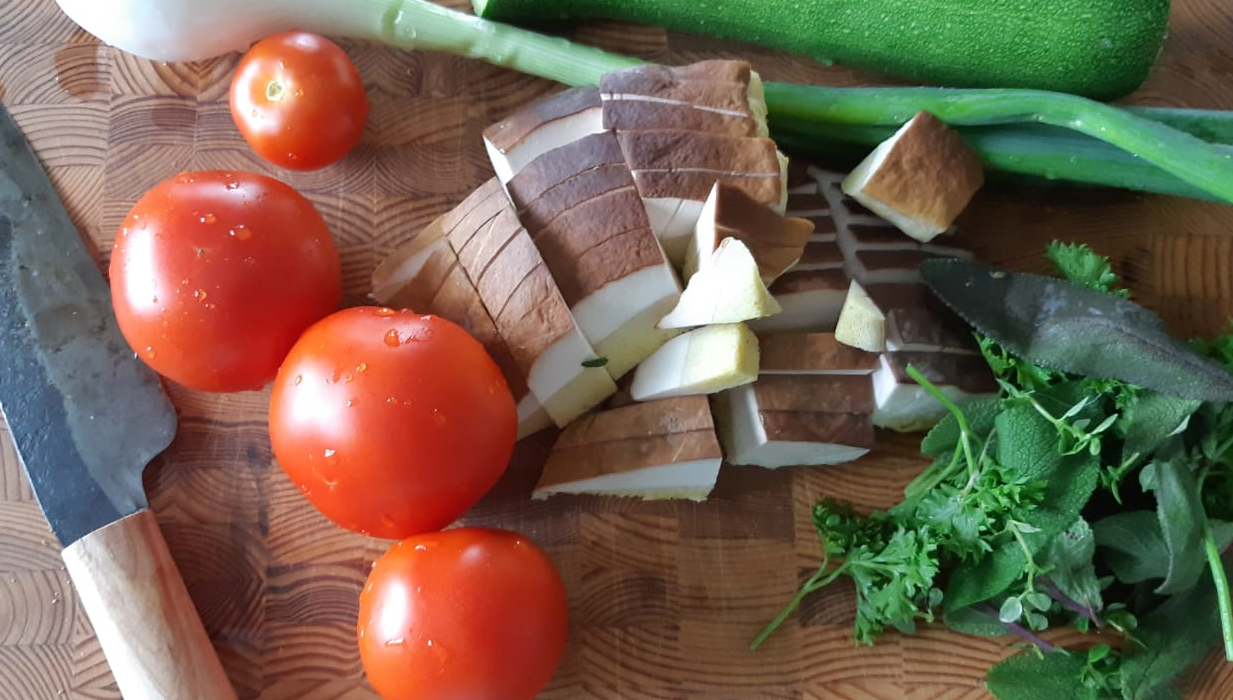What does food quality mean? Finns understand the technical aspects of food quality, such as the cold chain, security of supply, and purity. However, the technical quality is just one aspect. When environmental influencer Saara Kankaanrinta and top chef Henri Alén, co-authors of Suomalaisen ruoan laatukirja (The Book of Finnish Food Quality), discuss the topic they start from taste – and the soil.
‘
“When I think about the quality of food, I think about its whole journey from the farm to the table,” begins Henri Alén. ”I consider where the food comes from, how it’s produced, and above all, what it tastes like. The quality of food is not discussed enough. In my restaurants, I want my customers to think about and enjoy high-quality food that is delicious,” explains Alén, who is known for, for example, restaurants Finnjävel and Ultima.
“High-quality food is without question also ecological and ethical. The quality must be high, not only from the consumer point-of-view, but also from the-point-of-view of the producer and nature. Surprisingly, the soil has the biggest effect on this,” Kankaanrinta explains. ”The health of the soil affects crops and resilience in the face of extreme weather. It is in the farmer’s interest to pay attention to the health of the soil. Soil carbon sequestration and good soil structure also help mitigate climate change and reduce nutrient pollution of waters,” she continues.
“The health of the soil affects the taste. But you don’t really think about it. There is one branch of agriculture, where it’s obvious. Wine producers and wine enthusiasts know that the taste comes from the soil.”
Kankaanrinta is the founder of the Baltic Sea Action Group foundation as well as the chairperson of the board and is on the board of directors in several ecological companies. She and her husband also own the pilot farm Qvidja, where research is done on regenerative farming that is good for the climate, biodiversity, and the state of the Baltic Sea.
”The health of the soil affects the taste. But you don’t really think about it. There is one branch of agriculture, where it’s obvious. Wine producers and wine enthusiasts know that the taste comes from the soil,” Alén continues.
”As a wine enthusiast, I’m tickled by the fact that the effects of climate, weather, and soil on the taste of wine is referred to as ’terroir’. The word comes from Latin and means land. The significance of the soil is unquestionably included in it,” agrees Kankaanrinta. ”Out of these factors, the soil is the one that the farmer can nurture to improve the quality of the product. It’s also becoming ever clearer that it also helps to curb the effects of extreme weather and even slow climate change.”
“In food production, nearly everything is based on the soil. That is quite an epiphany. It’s important to see the big picture in how our actions affect the health of the soil.”
Regenerative farming – that aims at improving the health of the soil – is a growing trend in farming. It’s a comprehensive approach to food production, in which the ecosystem is revived while producing high-quality food, without forgetting the local conditions. Baltic Sea Action Group’s Carbon Action is one of the projects promoting regenerative farming principles and measures in Finland. Storing carbon in the soil alongside food production is also called carbon farming.
”In food production, nearly everything is based on the soil. That is quite an epiphany. It’s important to see the big picture in how our actions affect the health of the soil,” Alén continues.
”And how the soil feeds us, provides a home for countless organisms, recycles nutrients, acts as a carbon sink, and sustains life. First, you have to realize that, and then act accordingly! ”adds Kankaanrinta.


